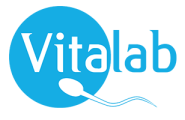
Fertility Drugs and Ovulation Induction
Patients that wish to conceive, but who suffer from irregular or absent cycles can benefit from the use of drugs for ovulation induction. There are a variety of drugs available in both oral and injectable forms.
The most commonly used oral drugs are Clomiphene Citrate or Letrazole.
Both of these induce ovulation and both boast side effects that range from headaches to cases of over stimulation, especially in the case of Clomiphene Citrate. It is therefore important to use these drugs under the supervision of a medical practitioner.
When Oral Medication Fails
In the event that oral medication fails to stimulate the production of an egg, one can utilise injectable drugs. These are ostensibly the same drugs that are used in IVF treatment, but in much smaller doses. Side effects vary from headaches to over stimulation. Again, it is very important that these drugs only be used under strict supervision of a medical practitioner.
Fertility Drugs and IVF/ICSI
In order to be able to do an IVF/ICSI treatment attempt, the ovaries have to be stimulated to produce between 8 to 12 eggs. As the body only produces one egg a month in a natural cycle, some sort of stimulation is required in order to get the ovaries to produce more than one egg.
This is achieved by utilising injectable hormones on a daily basis. The patient is then monitored regularly to make sure the eggs are growing according to plan and that not too many eggs are produced, as this may cause the patient to develop a condition known as ovarian hyper stimulation syndrome (OHSS).
As with all other medication available on the market, there are different kinds of hormone preparations available. The decision on which medication to use is generally based on the profile of a patient and their previous history –Vitalab can help you make an informed decision. Fill out an enquiry form to find out more.


